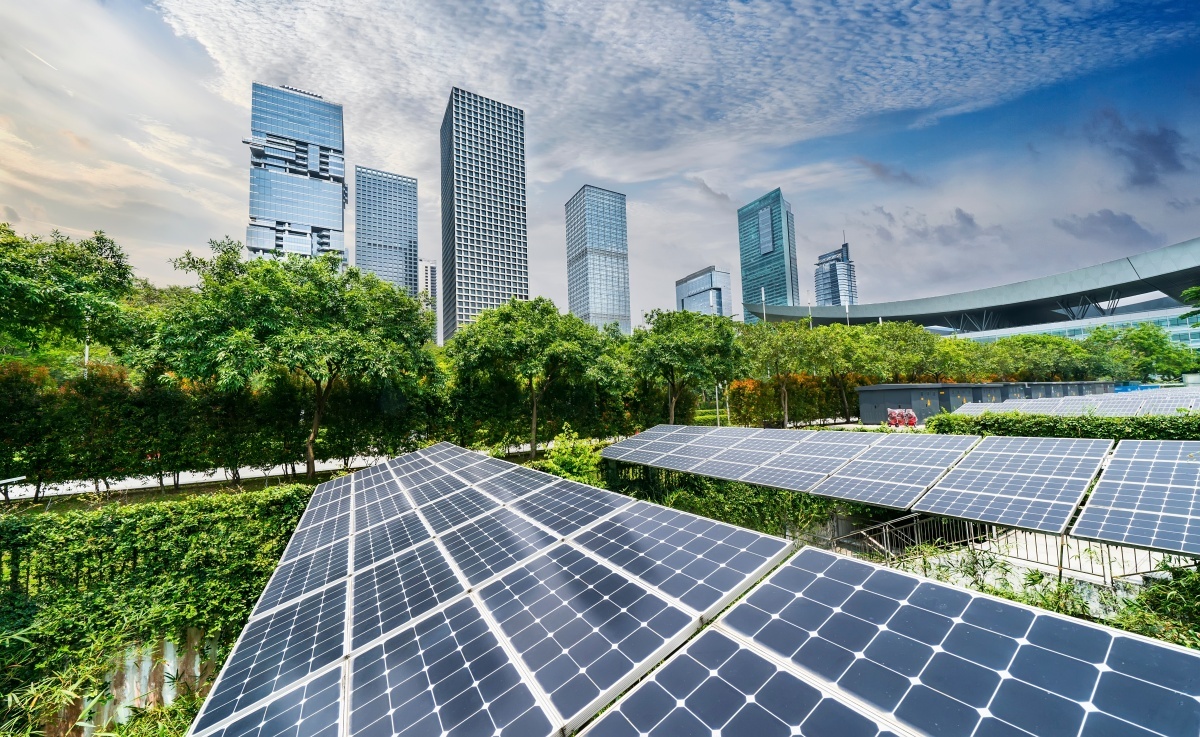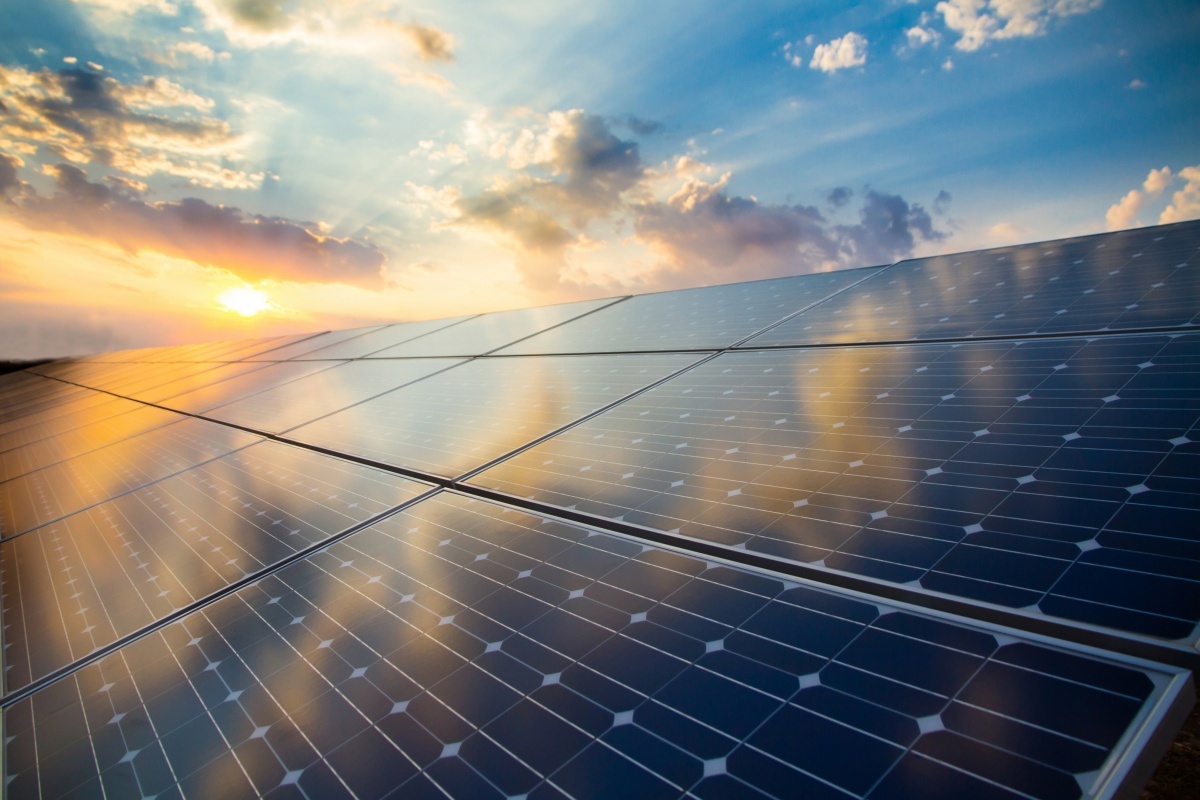Climate Change
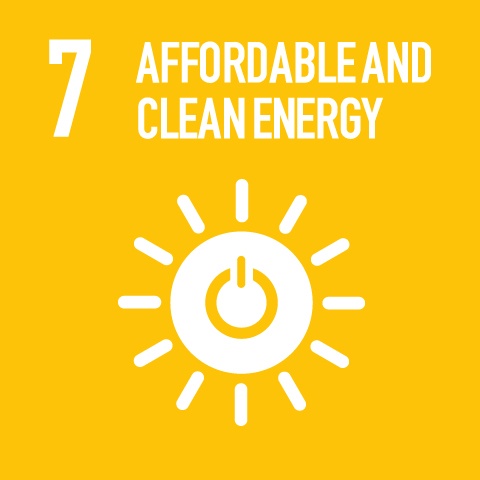
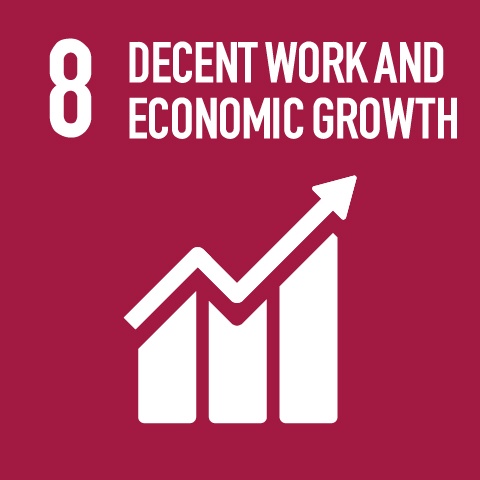
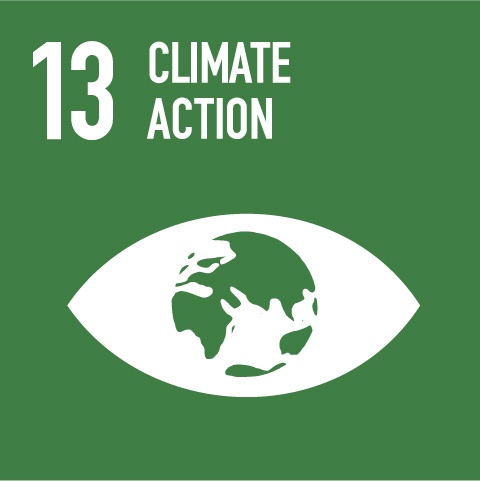
Climate change poses a significant threat to our planet and communities, impacting our business operations and stakeholders along the value chain. Central Retail understands the urgency and is committed to address the climate emergency through mitigation of its greenhouse gas (GHG) emissions in full and on time. This dedication is reflected in its near-term target of reducing 30% of GHG emissions (scope 1 & 2) by 2030, and its long-term target of achieving group-wide Net Zero GHG emissions (scope 1 & 2) by 2050. Both targets have the GHG emissions in 2023 as the baseline.
While Central Retail is delivering commitments, achieving these goals requires Central Retail to navigate a complex landscape of challenges due to the impact of climate change. For examples, Central Retail faces risks from potential supply chain disruptions caused by extreme weather events, resource scarcity impacting raw materials, increased operational costs associated with more sustainable practices, and evolving regulatory landscapes. Despite these challenges, there are numerous opportunities to advance Central Retail’s sustainability goals. Investing in energy efficiency and renewable energy technologies will reduce Central Retail’s carbon footprint and lead to cost savings. Additionally, data analytics can help Central Retail assess climate-related risks in order to make more informed and resilient decisions about inventory management, location selection, and business strategy.
Target
Impact to Business, Stakeholders, and Human Rights
Ignoring the urgent threats of climate change and inaction on greenhouse gas emissions reduction can contribute to escalating risks of extreme weather events. Climate change can have a significant impact on Central Retail’s operation and their stakeholders. Employees may face unsafe working conditions, which is a potential violation of human rights, and customers may turn into competitors with more sustainable practices. Such impacts lead to declining sales and damage to its reputation. Suppliers may struggle with increased costs and resource scarcity, impacting product availability and prices. Furthermore, ignoring climate change and energy management and neglecting to reduce greenhouse gas emissions can contribute to extreme weather events, which can directly impact surrounding communities and disrupt local infrastructure. Government agencies may impose stricter regulations and fines that increase operational costs for Central Retail. Investors and shareholders may lose confidence in Central Retail’s business prospects, invest elsewhere, or offer loans with higher interest rates, which can hinder Central Retail’s financial stability and access to capital. Addressing these interconnected challenges through well-planned climate strategy and energy management practices are crucial for Central Retail to protect the interests and well-being of its stakeholders while ensuring long-term competitiveness and growth potential.
Management Approach
Climate Governance Structure
Central Retail recognizes that achieving ambitious climate goals requires a robust governance structure spanning all levels of the organization. This structure, encompassing directors, executives, and employees across all business units and geographic locations, ensures consistent and coordinated efforts towards climate action.
The Corporate Governance and Sustainability (CGSD) Committee provides oversight of compliance and promotion of climate change and other sustainability issues under Central Retail’s ReNEW Strategy, and is responsible for reviewing the climate strategy. The CGSD Committee regularly gets reported and discusses on climate-related issues at least on an annual basis. In addition, the CEO and the Environment Committee provide executive oversight in developing the climate strategy and managing climate-related issues, while the Sustainable Development Working Team and the Environment Working Team are responsible for integrating the climate strategy into business operations and decision making, and for executing mitigation and adaptation measures in collaboration with relevant business units.
Climate Change Management Process
Central Retail has announced the ReNEW Strategy in driving all business units to achieve the group-wide Net Zero GHG emissions scope 1 and 2 target by 2050, and has developed a climate change management process in alignment with recommendations of the Task force on Climate-related Financial Disclosures (TCFD) and the International Financial Reporting Standards (IFRS) S2. This process is a comprehensive approach encompassing assessment, planning, action, monitoring, and reporting.
1. Assessment
Central Retail tracks and reports its scope 1, 2, and 3 GHG emissions in alignment to methodologies of the GHG Protocol. This data provides invaluable insights into key emission sources across the entire value chain, enabling precise and efficient management of GHG emissions. In addition, Central Retail reviews and assesses climate-related physical and transition risks and opportunities through scenario analysis.
Assessing GHG data and results of climate risk assessments inform Central Retail of how climate change and the associated low carbon transition can have business and financial implications, which are integrated into Central Retail’s decarbonization and adaptation plans, and its overall enterprise risk management.
2. Planing
Central Retail has set short-term and long-term climate action targets and has established decarbonization plans as a guidance for implementing GHG emissions reduction measures. In addition, Central Retail develops comprehensive adaptation plans for climate-related risks including proactive response measures and early warning systems such as emergency protocols for extreme weather events, and investments to enhance the climate resilience of its physical assets and infrastructure.
3. Implementation and Action
Central Retail implements a range of initiatives to achieve its emission reduction goals prioritizing on energy-efficient practices, investing in modern equipment and technologies to optimize energy consumption throughout business operations, and ramping up solar energy generation for self-consumption. Central Retail also invests nature-based solutions via forest restoration projects for long-term climate mitigation. Central Retail actively implements its adaptation plan and provides training for employees and suppliers on energy conservation and emission reduction practices to encourage GHG emission reduction throughout the value chain.
4. Monitoring and Review
Central Retail regularly monitors progress against targets and publicly disclose performance of the climate change management process to demonstrate accountability. To ensure continuous improvement, Central Retail actively reviews the management process, and establishes climate-related metrics as part of incentives provided to executives and employees.
The Task Force on Climate-Related Financial Disclosures (TCFD) Report 2023
Project Highlights
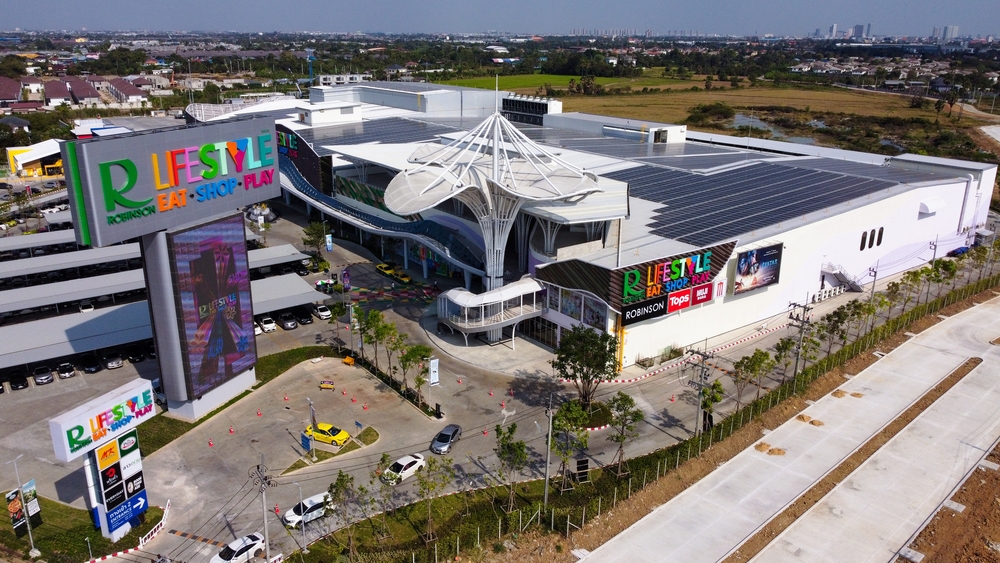
Solar Rooftop Installation
Central Retail has installed solar panels on the rooftops of its department stores and distribution centers with the primary objectives of reducing GHG emissions and energy costs. In 2023, the solar rooftop has been installed in 112 locations across assets from different business units in Thailand including Robinson Lifestyle, Central Department Store, Robinson Department Store, Tops Supermarket, Thai Watsadu, distribution center, and 30 locations in Vietnam. In total, the solar rooftops are estimate to produce 87,824 MWh (316 GJ) of renewable energy per year, which help Central Retail reduce 43.90 metric tons CO2e and 388,331 baht of energy cost per year
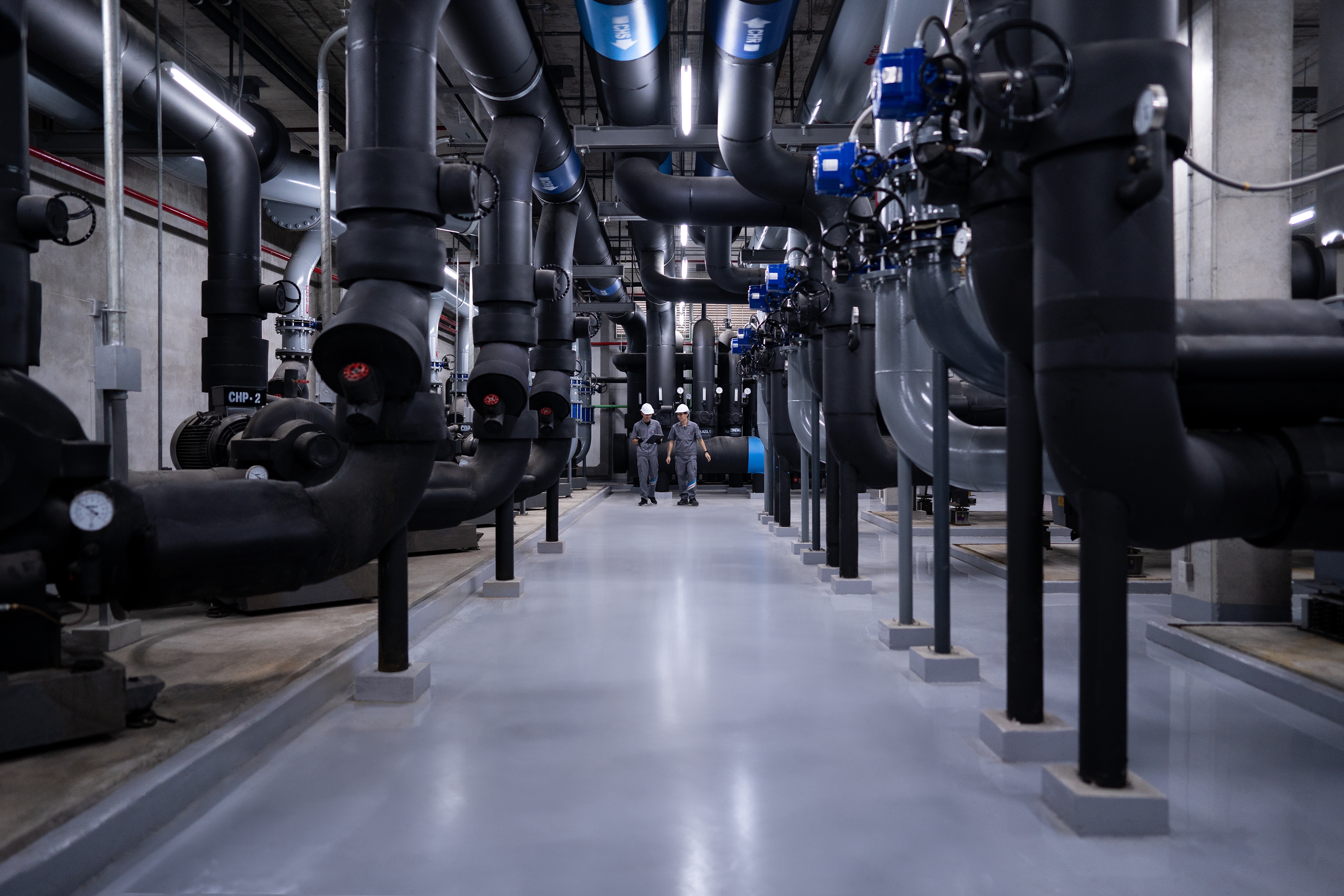
Energy Efficiency Improvements
In an effort to improve energy efficiency and promote sustainability across department stores and distribution center, Central Retail implements various initiatives in Thailand and Vietnam. In Thailand, Central Retail has implemented a chiller plant management system (CPMS) and energy management information system (EMIS) in 7 branches of Robinson Lifestyles. This technology enables Central Retail to monitor and manage the chillers used for air conditioning in the department stores, which helps to maintain proper chilled water temperature, avoids unnecessary cycling, and improves overall efficiency. As well as gather data on energy consumption in the department stores (e.g., chillers, lighting, and air conditioning) to identify areas of high energy consumption, which allow Central Retail to effectively target energy reduction efforts. It is estimated that the CPMS and EMIS can reduce energy consumption by 1,897 MWh (6,829.2 GJ), equal to 948.31 metric tons CO2e and reduce energy cost by approximately 8 million baht per year.

Reducing Energy Use
Central Retail has initiated a project to reduce energy consumption at distribution centers in Thailand by encouraging employees to utilize stairways instead of elevators, and shutting down some elevators during specific time intervals. This project is aimed at raising awareness for employees about energy conservation and preparing the facility for ISO 50001: Energy Management certification. This project is expected to reduce energy consumption by 50 MWh (0.18 GJ), equal to 25 metric tons CO2e, and reduce energy cost by 1-1.2 million baht per year.
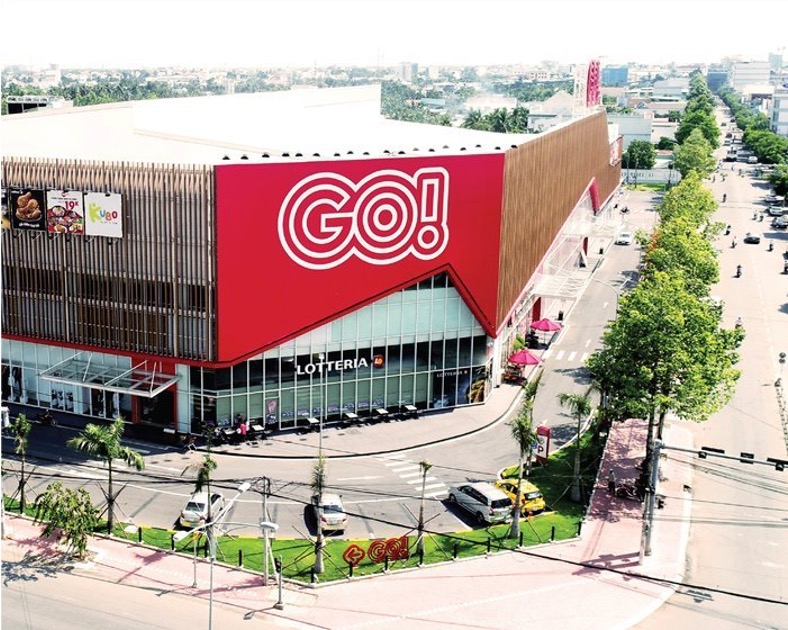
Installation of Free Air-Cooling System and an Inverter Stabilizer
In Vietnam, Central Retail has installed a free air-cooling system in 5 department stores in 2023 and has planned to expand to 10 more department stores in 2024. This technology utilizes naturally occurring air with temperatures below 26°C from outside department stores to help with air conditioning inside the department stores. This project is expected to reduce energy consumption by 257,154 MWh (925.75 GJ), equal to 53,249 metric tons CO2e and reduce energy cost by 1,405,819 baht per year.
Furthermore, the Vietnam business unit has installed an inverter stabilizer aiming to save energy and protect electrical equipment by stabilizing the EVN voltage. In 2023, 7 department stores have adopted this technology, which are estimated to reduce energy consumption by 746,567 MWh (2,786.64 GJ), equal to 154,592 metric tons CO2e, and reduction in energy cost by 2,998,647 baht per year.
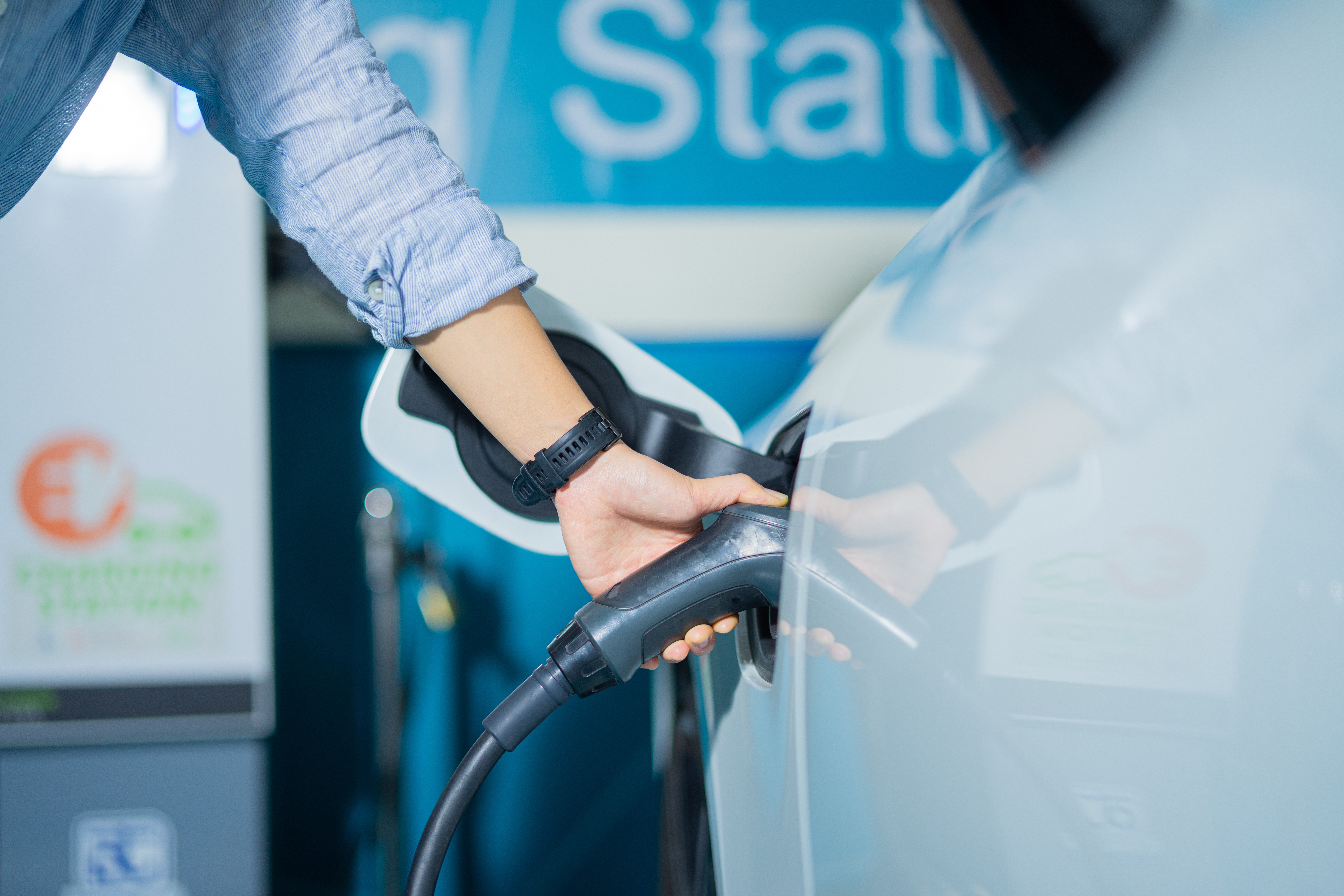
Sustainable Transportation for Business Operations and Customers
Central Retail promotes sustainable modes of transportation for its own business operations and customers. In 2023, Central Retail replaced 24 diesel-engine trucks with electric trucks for use in logistics across various business units. This adaptation is estimated to reduce 355,588 liters of diesel consumption and metrically reduce 970 metric tons CO2e of GHG emissions per year.
Importantly, Central Retail installed electric vehicle charging stations throughout its department stores to promote adoption of electric vehicles by customers. In 2023, Central Retail’s electric vehicle charging network is able to support 793 electric vehicles.
Performance Summary 2023
Energy Consumption
Total Energy Consumption (MWh)
Total Consumption by Type (%)
GHG Emissions
Scope 1 (tonnes CO2e)
Scope 2 (Location-Based / Market-Based) (tonnes CO2e / Baht)
Scope 3 (tonnes CO2e)
GHG Emissions Intensity (Scope 1 and 2) (tonnes CO2e/Baht)
- Data coverage in 2023 covers the business operations in Thailand and Vietnam.
- Other indirect greenhouse gas emissions (Scope 3) includes Purchased goods and services (Water), Waste generated in operations Business travel (Travel by plane), Employee commuting, Downstream Distribution and Transportation, and Downstream leased assets.


